It’s illegal to possess, sell or grow cannabis in Russia. The country has the highest number of people incarcerated for drug offences in Europe (per capita), and most were imprisoned under the notorious Article 228. However, there are hints that the law may change – with the country exploring the option of importing cannabis for medical research.
- Capital
- Moskva (Moscow)
- Population
- 142,607,000
- CBD Products
- Illegal
- Recreational cannabis
- Illegal
- Medicinal cannabis
- Illegal
- Cannabis laws in Russia
- Can you possess and use cannabis in Russia?
- Can you sell cannabis in Russia?
- Can you grow cannabis in Russia?
- Is CBD legal in Russia?
- Can cannabis seeds be sent to Russia?
- Medicinal cannabis in Russia
- Industrial hemp in Russia
- Politics and cannabis
- Good to know
- Cannabis history
- Attitudes towards cannabis
- Will it be legalised in the future?
Cannabis laws in Russia
Can you possess and use cannabis in Russia?
Russia’s government takes a tough stance on possession or use of cannabis. Both are illegal, in accordance with Article 228 of the country’s Criminal Code, and are punishable with a fine and/or a prison sentence. Since 2012, the penalties can be deferred if the offender is found to have a drug problem.
Possession of up to six grams is regarded as an administrative offence. Anything above seven grams is a criminal offence. However, there are reports of people being arrested for cannabis possession, only to have the authorities exaggerate the amount of cannabis they were caught with.
For ‘large-scale’ possession, the following punishments may be given:
- A fine of up to 40,000 roubles
- The equivalent amount of three months of the offender’s wages/salary
- Compulsory works for up to 480 hours
- Corrective labour for up to two years
- Restriction or deprivation of liberty for up to three years (in most instances, prison)
For ‘especially large-scale’ possession, these penalties are increased to:
- A fine of up to 500,000 roubles
- The equivalent amount of three years of the offender’s wages/salary
- And/or a restriction or deprivation of liberty for three to 10 years
If the individual willingly hands the cannabis over to the authorities, and ‘actively contributes’ to the uncovering and suppression of drugs-related activities, he may avoid being given any penalties.
In real terms, possessing or using cannabis in Russia is a risky practice. For offenders, the acquittal rate is 0.1%, with most being sentenced to three years in prison. Close to half of the 102,217 guilty verdicts in 2017 were for those convicted of cannabis or other soft drugs-related offences.
Despite this, there are still large numbers of drug users in the country. It’s estimated that they number between 7.3 and 8.5 million in total.
Can you sell cannabis in Russia?
Likewise, it’s illegal to sell cannabis in Russia and the sale of the substance is regarded as a serious offence. If caught selling cannabis or any other drugs, the offender will be deprived of liberty for four to eight years with restriction of liberty for up to one year.
However, what is considered ‘large-scale’ selling or carried out as part of a bigger group of people increases the prison term to five to 12 years and is possibly accompanied by fine too, of up to 500,000 roubles (or three years’ salary).
If it’s on an especially large scale, or the offender is operating as part of an organised gang, or he is selling the cannabis through his official position at work, then the sentence is further elevated to a prison term of eight to 20 years. Additionally, the right to work in certain roles or engage in specific activities may be removed, and there’s also the risk of having to pay one million roubles as a fine (or five years’ salary).
In spite of these tough penalties, drug trafficking remains an issue in Russia. In 2016, Viktor Ivanov (the former head of the country’s drug enforcement agency), estimated that the narcotics industry was generating an annual profit of 1.5 trillion roubles.
Unemployment sometimes drives Russians to sell drugs to make a living. One online dealer commented to the Moscow Times: “You’re looking for legitimate ways to make ends meet. And then you think: Screw this, I’m going to do the only thing I’m good at, which is selling drugs.”
He also pointed to the city of Windhoek, the coastal towns of Walvis Bay and Swakopmund, and the northern town of Oshakati as key areas where drug dealing is most rampant.
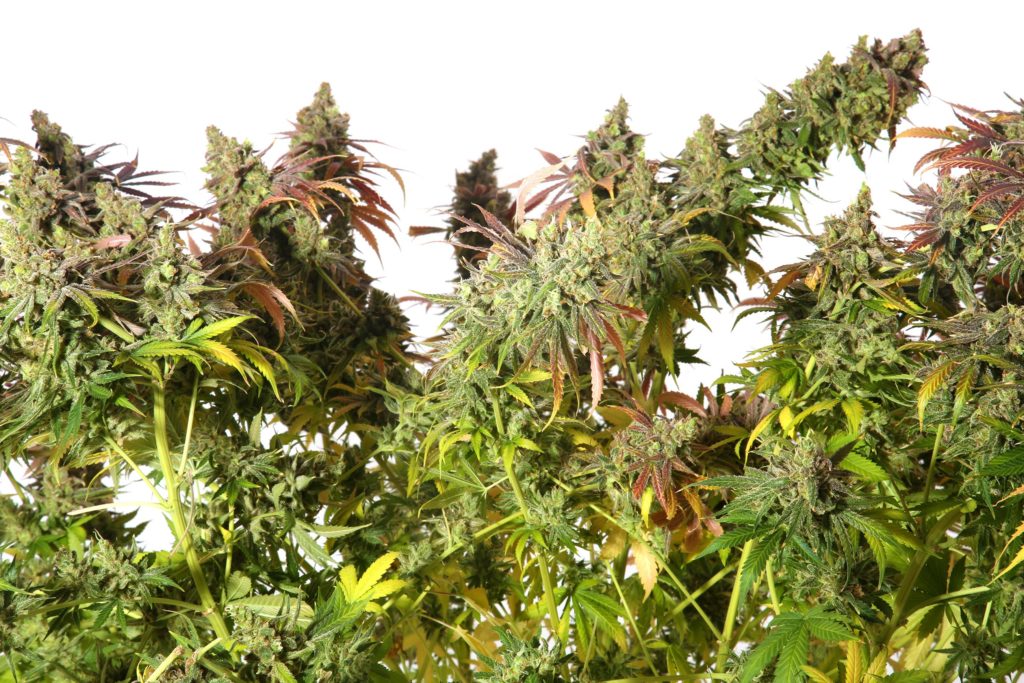
Can you grow cannabis in Russia?
It’s illegal to grow cannabis in Russia. The sentences are the same for cultivation as they are for sale, with hefty prison sentences in place for those who are caught growing even small numbers of plants.
In June 2019, the government showed signs of relaxing this law to an extent. They passed a bill, permitting the cultivation of cannabis for pharmaceutical purposes. The bill still needs to be approved by the Federation Council and signed by President Vladimir Putin in order to become law.
If passed, it would permit state companies to grow cannabis, providing they have a special licence to do so.
Is CBD legal in Russia?
All cannabis products are illegal in Russia, regardless of how much THC (the substance responsible for the ‘high’) they contain. As such, individuals may not possess, sell or buy any CBD products in the country.
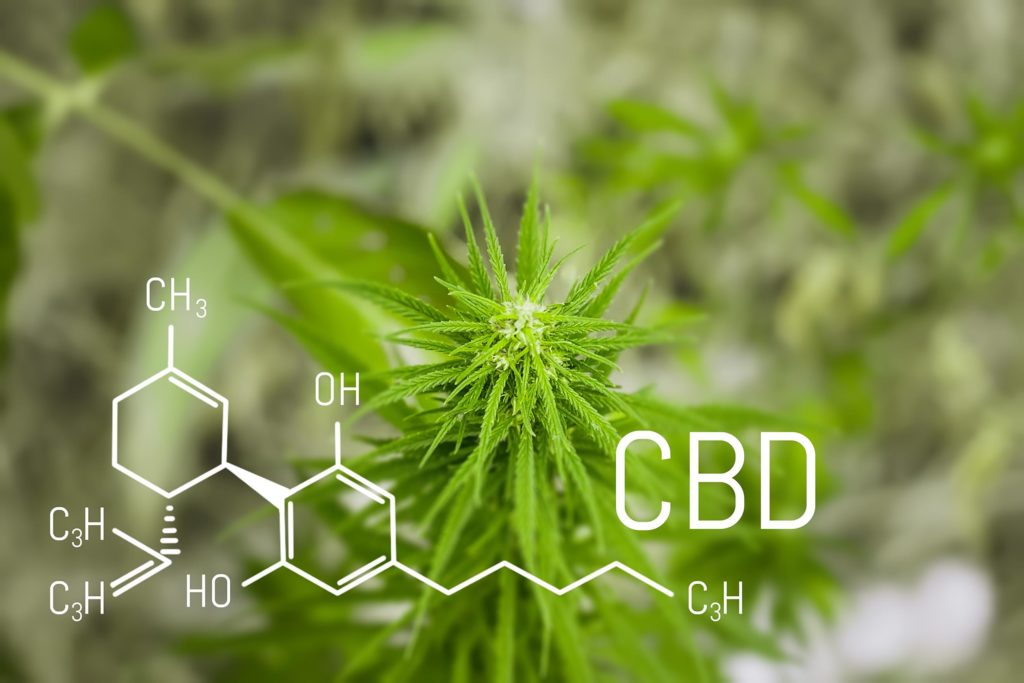
Can cannabis seeds be sent to Russia?
Cannabis seeds are also illegal, and may not be sent into the country via the mail.
Medicinal cannabis in Russia
At present, Russia has no medicinal cannabis programme. Neither has the government expressed any intention to introduce one in the future. However, the country’s health ministry has stated that it wants to import cannabis for medical research purposes.
A draft regulation document states that both hashish and cannabis are required to study drug addiction, and to isolate active ingredients. It also proposes to import 1.1 kilograms of cannabis, 300 grams of hashish, and 50 grams of hash oil to fulfil these requirements.
This isn’t the first time that Russia has relaxed its laws regarding medicinal cannabis. For example, in the 2018 FIFA World Cup, foreign football fans were permitted to bring medicinal cannabis with them, as long as they had a prescription.
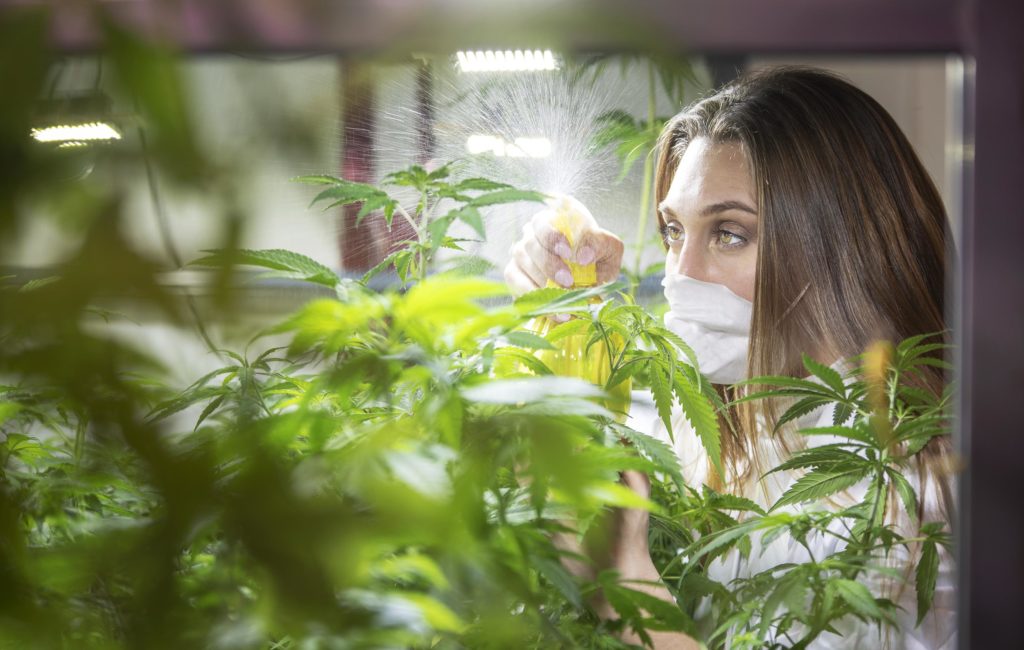
Industrial hemp in Russia
Hemp was once an important crop for Russia. In fact, by the end of the 18th century, hemp fibre provided one of the main sources of income for many parts of the country. This continued until the 19th century when Russia was responsible for producing around 40% of Europe’s hemp.
This changed during the early 1900s. The hemp trade began to decline, not only due to negative perceptions of the plant, but also because of shrinking acreage and low yields. The socialist reconstruction of agriculture changed the face of hemp cultivation in the country.
Hemp was never made illegal though, and is still grown in Russia. The Konoplex Group is a good example of an organisation profiting from hemp in the country.
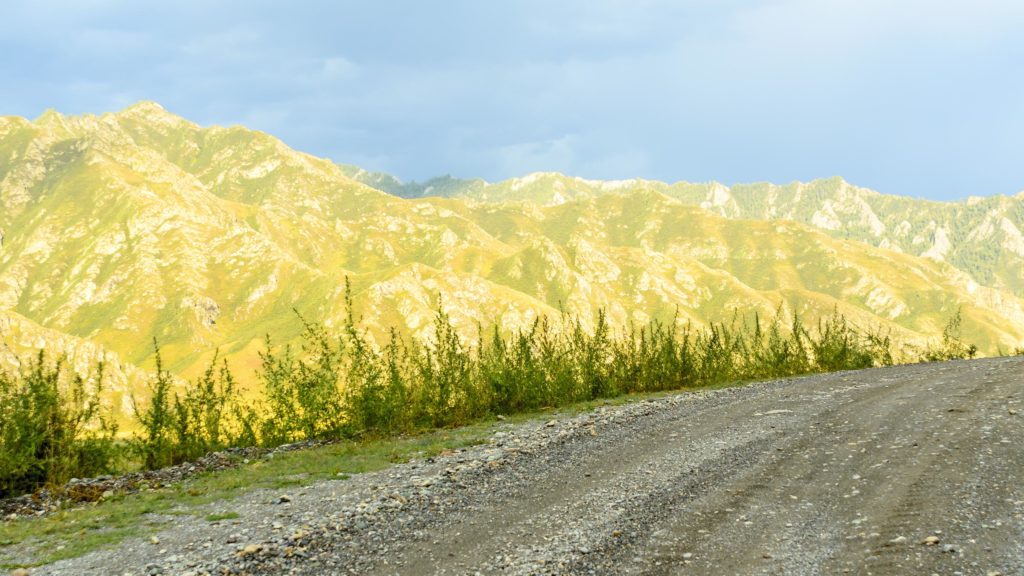
Politics and cannabis
President Vladimir Putin has always adopted an anti-cannabis stance. For example, he was openly critical of Canada’s decision to legalise the drug, with his government claiming that the country had “deliberately decided to breach” international law.
He’s also expressed a desire to censor other aspects of Russian life, in a bid to curb cannabis use. In 2018, he put forward a suggestion to control rap music, as some tracks referenced drug use. Likewise, his government threatened to block Wikipedia if a page detailing how to make a specific type of hash wasn’t taken down.
Good to know
If you are travelling to Russia (or currently live there), you may be interested to know the following:
- Eradication efforts are fairly common in the country. In 2018, the police even discovered a ‘floating’ cannabis farm on a river in the Arkhangelsk region, and seized 230 plants.
- Although the penalties are severe for cannabis use, this doesn’t stop protests from happening in Russia. One notable example was in 2011, at VDNKH Park. Police put a stop to the festivities before they’d even begun, by blocking all the entrances.
- Opioid use (particularly heroin) is a major issue for Russia, with high national rates of abuse.
Cannabis history
Archaeologists have discovered evidence that cannabis was used in Russia thousands of years ago. A burial site in the Altai Mountains revealed that the ancient people of the country used the plant, perhaps for religious or spiritual purposes.
Experts believe that cannabis entered the country with the Scythians, a nomadic group known to carry the substance with them as they moved from country to country. From here, it’s thought its usage spread to Europe.
Hemp remained an important part of Russian life for centuries. From the 18th century onwards, the country became the largest hemp producer in the world; around 1740, it was growing nearly 80% of the hemp used in Europe.
In fact, hemp was the most important commodity for Russians – more lucrative even than wood, metal or fur. By the 19th century, Great Britain’s shipping industry was almost totally dependent on Russian hemp, which provided Napoleon with the ideal reason to start a hemp war.
In 1807, Napoleon brokered a deal with Tsar Alexander I, agreeing to peace if Russia stopped supplying hemp to Great Britain. This didn’t last long – by 1811, trade had resumed between the two countries. As a result, in 1812, Napoleon marched to Moscow, with the intention of gaining control over Russia’s hemp supply. The campaign failed miserably.
In the early 1900s, Russia was still a major hemp producer, but after the fall of the Soviet Union, cultivation levels decreased. However, it’s thought that there are still around 2.5 million hectares of hemp growing in the wild in the country, particularly in the far eastern regions, and near the Black Sea.
Attitudes towards cannabis
Russia’s government has traditionally taken a negative stance on cannabis use, which in turn, has impacted the general public’s perception of the plant. According to one news report, 89% of the country’s people are against legalising the drug. That opinion has pervaded for many years.
Cannabis isn’t as widely used as in other countries. Indeed, the more commonly abused substance is alcohol. Approximately 3.9% of the population use cannabis, which is in-line with many other Eastern European countries. However, it’s quite a bit lower than Western European nations.
Will it be legalised in the future?
Given the country’s negative views on cannabis use, it’s unlikely that recreational use will be legalised any time soon. However, the government’s recent steps to legalising cannabis cultivation for medicinal and research purposes marks a shift in attitude. Perhaps a medicinal cannabis programme will be introduced in the future – but at this point, there’s no evidence to suggest that this will happen.
- Disclaimer:While every effort has been made to ensure the accuracy of this article, it is not intended to provide legal advice, as individual situations will differ and should be discussed with an expert and/or lawyer.







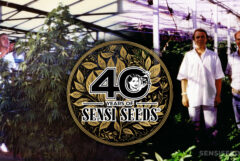



I read that the percent of people in prison for marijuana was very high, my question would be what was their average sentence? I’m curious!
Good morning Michelle,
I hope you’re having a great day,
Unfortunately , I believe there a large proportion of people incarcerated in Russia for cannabis related offences. Ironic, as Ruderalis Sativa grows wild across most of Russia.
American citizen Marc Fogel was recently sentenced to 14 years in a Russian prison for the possession of 17 grams of cannabis. 🙁
However, I am unsure of what an average sentence would be. If any of our readers know, please let us know!
I hope you continue to enjoy the blog,
Mark
5 March 2022/ Brittney Griner, one of America’s most decorated women’s basketball players, has been detained by the Russian Federal Customs Service after it said it discovered vape cartridges that contained hashish oil in her luggage at an airport near Moscow.
Good afternoon Erwin,
I hope you’re having a great day, thanks for keeping us updated on the situation.
You might also enjoy our new Grow Reports!
Thanks again, and I hope you continue to enjoy the blog.
Mark
Awfully dumb to do something like that as an American in Russia during times of war…
But, he’s a dude !
awesome ! Thanks for sharing. I appreciate.
Hi Scarlet,
I tell you instead of DK, what is wrong in the article. 2 days ago I was trying to buy some seeds, with shipment to Russia. Sensiseeds does not ship to Russia, thinking, that seeds shipping is illegal process. That is wrong, and I have informed Sensiseeds guy from support service about it. Seeds do not contain any drugs substances inside, therefore Russia has no low restrictions, connected with seeds shipping.
However, I have to admit, that law enforcement practice, based on Article 228, is an example of “punitive psychiatry”, that’s why I strongly recommend to be very careful for any person, who lives in Russia or visits Russia.
Best regards,
Moshe
Hi Moshe,
Thanks for your comment and your feedback. This is something we can actually work with, rather than ‘everything is bs’. We are continuously checking and updating the articles in our ‘Cannabis In…’ series, and I have passed your comment to the team. They will look into it as soon as possible. If you have any other feedback, including official sources, that would be incredibly helpful. We do not want to publish inaccurate information, and as previously stated, we have all articles containing legal information checked by a lawyer before posting them. The date of the most recent update can be found at the top of the article.
Thanks again, and I hope you continue to enjoy the blog.
With best wishes,
Scarlet
Practically every statement in this article is either partially incorrect or a complete bs.
Sensi should consult people with real knowledge before posting articles.
Hi DK,
I’m sorry to hear that you feel this way. We do take care to ensure that the information we share is accurate, and we have all of our articles pertaining to legal and medical matters checked by a lawyer and an MD respectively. Please could you let me know what the issues are with this article so that they can be corrected? Or provide sources that contradict what is posted here?
With best wishes,
Scarlet